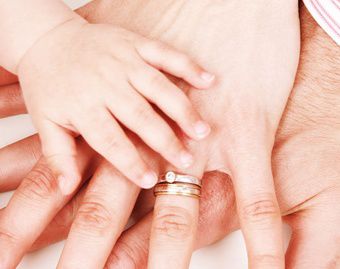A study claiming better wellbeing among children of same-sex couples was based on data that merits “healthy scepticism” due to “suspect science” such as selective surveying, a sociology professor has said. “In such a charged environment, the public — including judges and media — would do well to demand better-quality research designs, not just results they approve of,” Mark Regnerus, a sociology professor at the University of Texas at Austin, said in a July 9 essay at the Public Discourse website. His comments respond to the study “Parent-reported measures of child health and wellbeing in same-sex parent families: a cross-sectional survey,” which was published June 21 in the journal BMC Public Health by researchers from the University of Melbourne. The study analyzed data from the Australian Study of Child Health in Same-Sex Families, which received surveys from 315 Australian parents representing 500 children. About 80 percent of these children were from households of female couples. The study’s authors said the study demonstrated that children raised by same-sex attracted parents in Australia are “faring well on most measures of child health and wellbeing” and show “higher levels of family cohesion” compared to the broader population, based on parent reports. It said these children experience “perceived stigma” that has a negative impact on mental and emotional wellbeing. Major U.S. media websites such as the Washington Post and NBC News carried reports on the Australian study. However, Regnerus saw flaws in the study’s data. He said the data collection process is comparable to an effort to study the wellbeing of children of evangelical Christian parents by recruiting survey respondents from parents of Sunday school attendees at churches in prosperous, socially supportive communities, and then comparing this sample to a population-based survey studying average children from average families. “Would the social scientific community consider this study a solid one, employing high-quality sample selection methods and useful both for understanding the experience of Christian households in America and for comparing this group of children with other children?” Regnerus asked. “To put it mildly, it’s unlikely. And I would agree with them.” He said his hypothetical survey of Christian parents is a “close analogy” to the data used in the study, which was based on what is known as a convenience sample. The data sample was not random and based on the broad population. Rather, the data was gathered by recruiting parents in same-sex households through gay and lesbian news media, e-mail lists, community events and community groups such as Gay Dads Australia and the Rainbow Families Council of Victoria. Regnerus said that the data collection method “is not the way to build a sense of average same-sex households with children.” “To compare the results from such an unusual sample with that of a population-based sample of everyone else is just suspect science. And I may be putting that too mildly.” The survey sample reflects the responses of those who “actively pursued participating in the study.” Responding parents “are all well aware of the political import of the study topic, and an unknown number of them certainly signed up for that very reason.” He said that in addition to selective participation, there would be a temptation among respondents to self-report more positive assessments than normal. Regnerus said that the Australian data includes responses from parents raising children born in “comparatively new ways.” Eighty percent of children raised by female couples were conceived from artificial insemination or assisted reproductive technology, while 82 percent of children raised by male couples were born through a surrogate. Since 99 percent of children are not born through these methods, these children are not representative due to the “comparative expense” involved in their conception. “This is not consonant with the average couple’s experience, whether that couple is an opposite-sex or same-sex pair,” Regnerus said. “In this study, as in much of the same-sex marriage movement, the public is treated only to the lives and experiences of the LGBT elite. Those with more modest means are missing in action.” He said that social scientists need to do “the difficult, expensive work of locating same-sex attracted parents (however defined) through random, population-based sampling strategies” to determine whether their results are true and valid. Regnerus is the author of a study that suggested children raised in same-sex households face more difficulties than those raised in conventional families. In 2012 he published research that found “statistically significant” differences in 25 of 40 outcomes between U.S. adult children who grew up with married, opposite-sex parents and those who grew up with a mother who had a same-sex relationship. Households led by parents of either sex who engaged in same-sex relationships also showed greater household instability. Children from same-sex female households showed more physical and mental health problems, more instability in romantic relationships, and lower average income as adults. They also showed higher levels of unemployment, smoking, need for public assistance and involvement in crime. Regnerus’ research was based on data from the University of Texas at Austin New Family Structures Study. His research came under criticism from major media outlets and homosexual activists, one of whom filed a misconduct charge against Regnerus that his university later said was not substantiated. A group of 18 social scientists supported Regnerus in the controversy.

